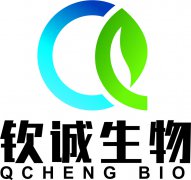细胞因子重组蛋白

Recombinant Rat sRANK Ligand
Recombinant Rat sRANK Ligand
产品详情
RANKL and RANK are members of the TNF superfamily of ligands and receptors that play an important role in the regulation of specific immunity and bone turnover. RANK (receptor) was originally identified as a dendritic cell-membrane protein, which, by interacting with RANKL, augments the ability of dendritic cells. These dendritic cells then stimulate naïve T-cell proliferation in a mixed lymphocyte reaction, promote the survival of RANK + T-cells, and regulate T-cell-dependent immune response. RANKL, which is expressed in a variety of cells, including osteoblasts, fibroblasts, activated T-cells and bone marrow stromal cells, is also capable of interacting with a decoy receptor called OPG. Binding of soluble OPG to sRANKL inhibits osteoclastogenesis by interrupting the signaling between stromal cells and osteoclastic progenitor cells, thereby leading to excess accumulation of bone and cartilage. Recombinant Rat sRANKL is a 19.4 kDa polypeptide comprising the TNF homologous region of RANKL (174 amino acid residues).
Source: E.coli
Synonyms: soluble Receptor Activator of NF-κB Ligand, TNFSF11, TRANCE (TNF-related activation-induced cytokine), OPGL, ODF (Osteoclast differentiation factor)
AA Sequence: PAMMEGSWLD VARRGKPEAQ PFAHLTINAA DIPSGSHKVS LSSWYHDRGW AKISNMTLSN GKLRVNQDGF YYLYANICFR HHETSGSVPA DYLQLMVYVV KTSIKIPSSH NLMKGGSTKN WSGNSEFHFY SINVGGFFKL RAGEEISVQV SNPSLLDPDQ DATYFGAFKV QDID
Purity: ≥ 98% by SDS-PAGE gel and HPLC analyses.
Biological Activity: Determined by its ability to induce NF-κB in RAW264.7 cells in the absence of any cross-linking. The expected ED50 for this effect is 10.0-25.0 ng/ml.

